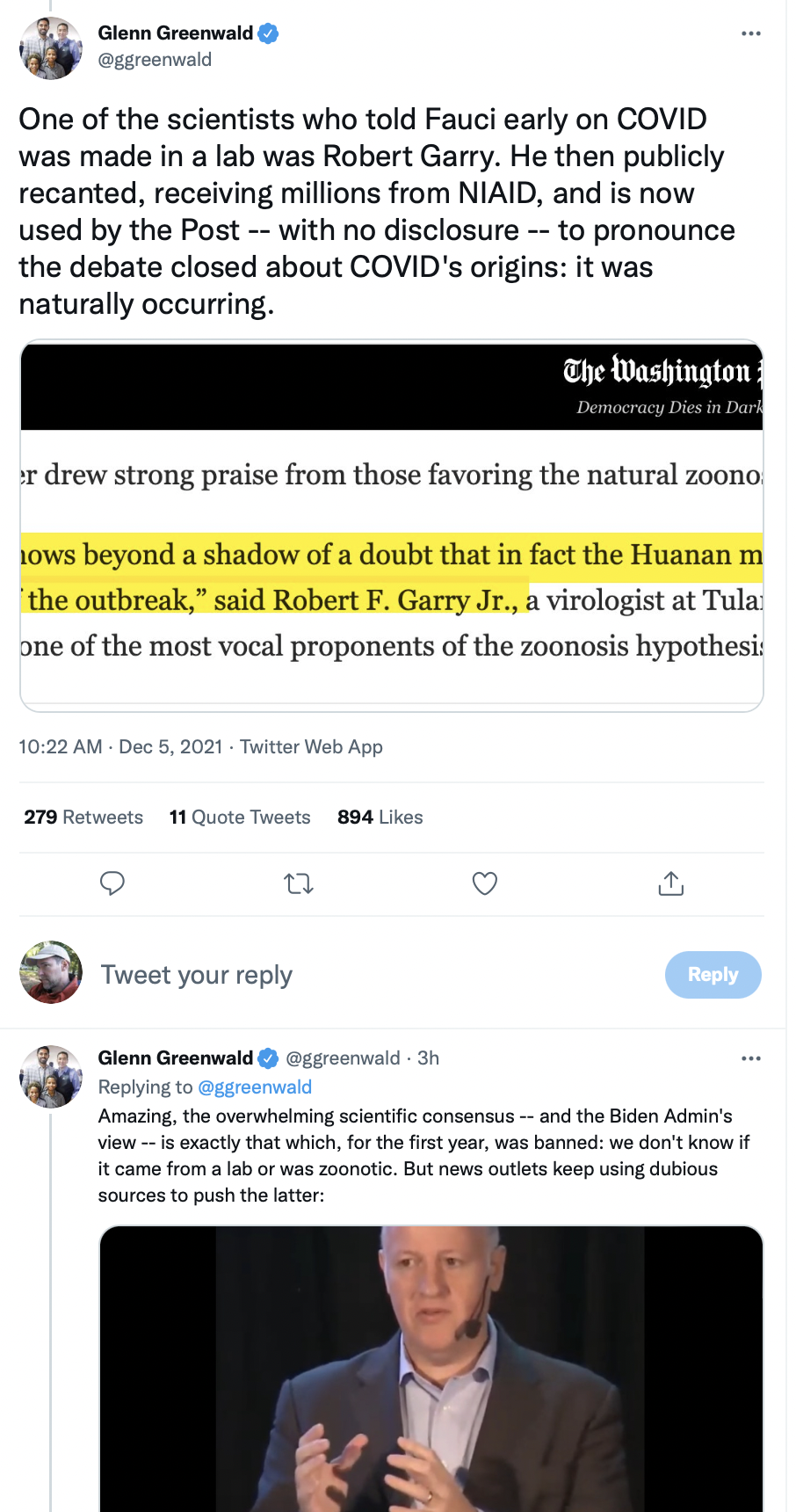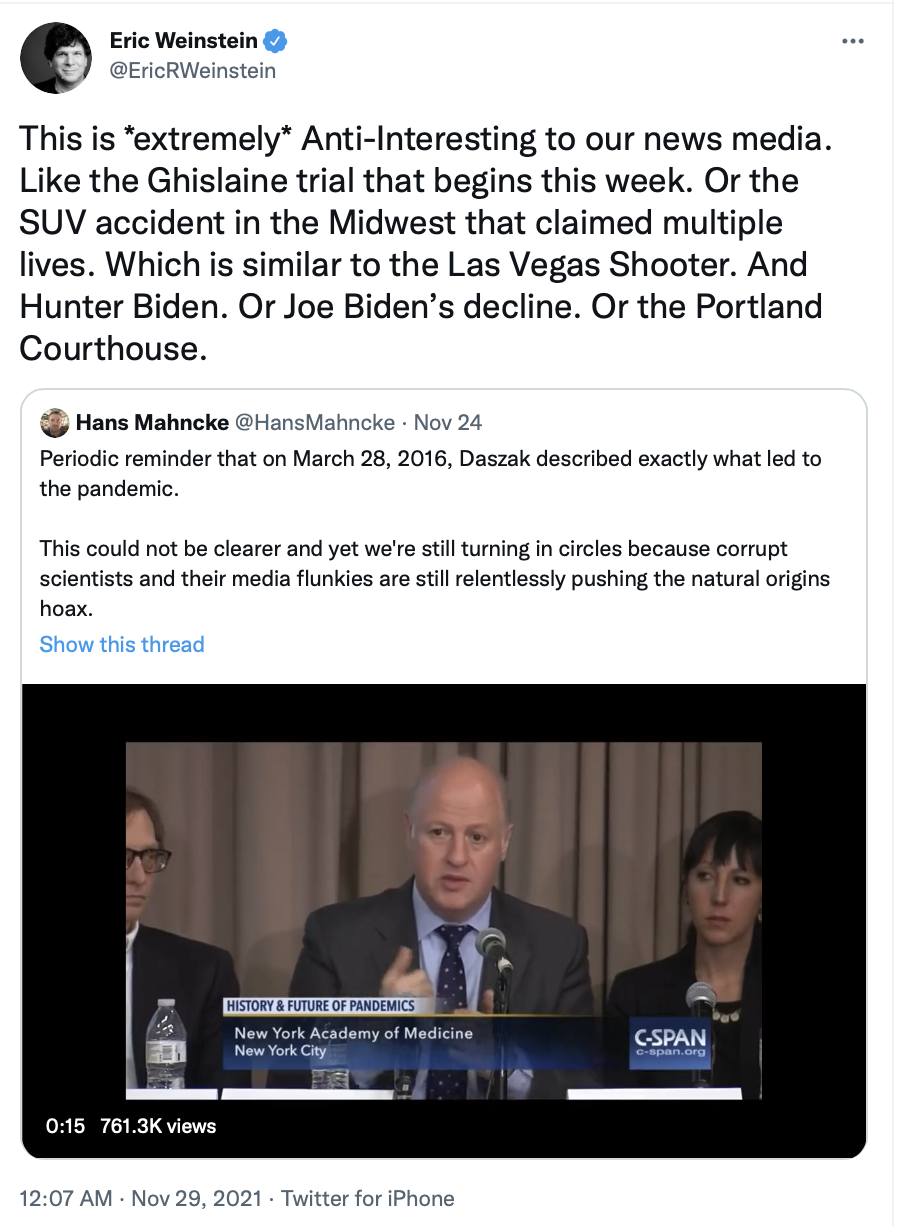I don't claim to know the ultimate answer, but this new willingness to look at the evidence reflects poorly on many scientists (including some with blatant conflicts of interest) and ultra-credible news outlets, including the NYT, which declared that the lab leak hypothesis was a conspiracy theory and even published an 05/26/2021 article by Apoorva Mandavilli, claiming that to even ask the question about lab leak origin was "racist."
Now we have a new book shedding light on this question, described at Reason in this article: "Was It a Lab Leak? The Mysterious Origin of COVID-19: Matt Ridley and Alina Chan, authors of the new book Viral: The Search for the Origin of COVID-19, say the preponderance of evidence now points toward a lab origin and genetic engineering." Here's an excerpt:
Ridley says that White House COVID-19 adviser Anthony Fauci's emails, which were made public through a Freedom of Information Act request, show that behind the scenes scientists were taking the lab-leak theory seriously all along.
"A number of leading virologists were talking to each other and were saying to each other, 'we think this might look a bit like a virus that's been engineered in the laboratory,'" says Ridley, referencing a January 31, 2020, email in which researcher Kristian G. Andersen says that "one has to look really closely at all the sequences to see that some of the features (potentially) look engineered." Fauci replies a day later, "Thanks, Kristian. Talk soon on the call."
"And at the end of that phone call, they all did a very rapid volte-face, and started writing articles almost immediately," says Ridley, referring to an influential article Andersen and his colleagues published in Nature on March 17, 2020, stating that "our analyses clearly show that SARS-CoV-2 is not a laboratory construct or a purposefully manipulated virus." On March 6, Andersen emailed Fauci to tell him the paper had been accepted for publication, to which Fauci replied, "Nice job on the paper."
From Plindia:
Two New York Times workers have confirmed to The Spectator on Monday that a top editor of the American daily newspaper had told employees early in the year 2020 when the world was just about starting to come to terms with the global pandemic that had been unleashed on it, that they should not probe or follow up the origins of the deadly and highly contagious virus.
The NYT journalist reportedly told Dominic Green, the deputy editor of the US edition of The Spectator: “In early 2020, I suggested to a senior editor at the paper that we investigate the origins of COVID-19. I was told it was dangerous to run a piece about the origins of the coronavirus. There was resistance to running anything that could suggest that [COVID-19 was manmade or had leaked accidentally from a lab].
Google and other social media outlets also drank the Koolaid and decided to shut down the conversation because they were so damned certain of the answer:
HBO host Bill Maher criticized social media and search engine companies for suppressing and blocking stories about the origins of the coronavirus over this past year, specifically the lab leak theory.
"Facebook banned any post for four months about COVID coming from a lab. Of course, now, even the Biden administration is looking into this," Maher said Friday during a panel discussion on his show Real Time.


